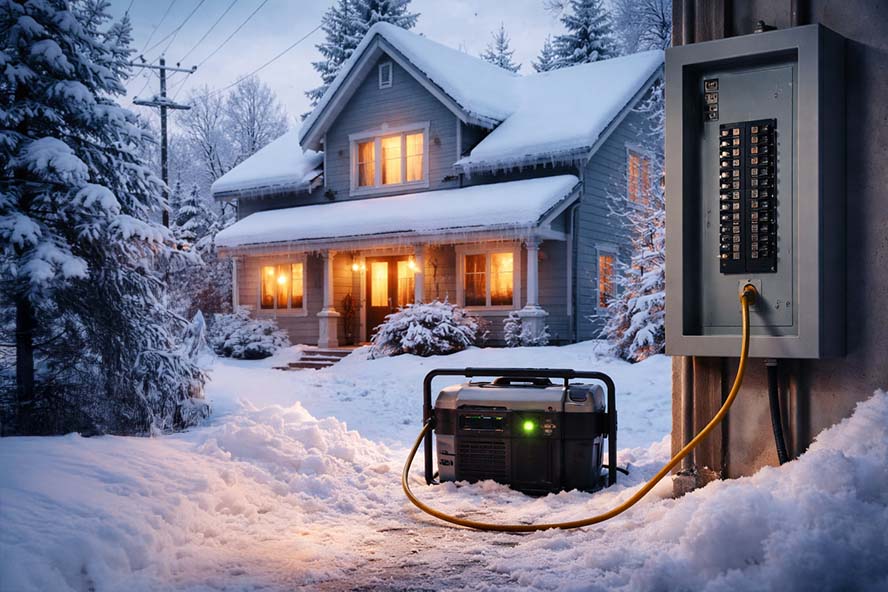In today’s fast-paced business environment, uninterrupted power is crucial for maintaining productivity and ensuring customer satisfaction. For many commercial businesses, investing in a backup generator can provide peace of mind and operational continuity during power outages. However, like any significant investment, owning a backup generator comes with its own set of advantages and disadvantages. Here’s a detailed look at the pros and cons of having a backup generator for your commercial business.
Pros
1. Business Continuity
A backup generator ensures that your business can continue to operate during power outages. This is particularly important for businesses that rely heavily on electronic systems, such as data centers, retail stores with point-of-sale systems, and healthcare facilities with critical equipment.
2. Customer Satisfaction
Maintaining power during an outage means you can continue to serve your customers without interruption. This reliability can enhance your reputation and customer loyalty, as clients appreciate businesses that can operate seamlessly even during emergencies.
3. Protection of Equipment
Sudden power outages and surges can damage sensitive equipment, leading to costly repairs or replacements. A backup generator provides a stable power supply, protecting your valuable assets from potential damage caused by unexpected power loss.
4. Increased Safety
In environments where safety is paramount, such as hospitals or manufacturing plants, a backup generator ensures that critical safety systems, such as emergency lighting and ventilation, remain operational during a power outage.
5. Financial Savings
While the initial cost of a generator can be high, the potential savings from avoiding downtime, lost revenue, and damaged equipment can make it a worthwhile investment. Businesses can maintain productivity and avoid the financial repercussions of unexpected power interruptions.
Cons
1. High Initial Cost
The purchase and installation of a backup generator represent a significant financial investment. Costs can vary depending on the size and capacity of the generator, as well as the complexity of the installation process.
2. Ongoing Maintenance
Generators require regular maintenance to ensure they are ready to operate when needed. This includes routine inspections, testing, fuel management, and repairs. The ongoing maintenance costs can add up over time.
3. Fuel Costs and Storage
Generators typically run on diesel, natural gas, or propane, and fuel costs can be substantial, especially during prolonged outages. Additionally, fuel storage requires careful management to prevent degradation and ensure safety compliance.
4. Noise and Emissions
Generators can be noisy, which may not be suitable for all business environments. Additionally, they produce emissions that can contribute to air pollution. Businesses need to consider local regulations regarding noise levels and environmental impact when installing and operating a generator.
5. Space Requirements
Backup generators require a dedicated space for installation, which may be challenging for businesses with limited space. Proper ventilation and safety measures are necessary, which can further complicate the installation process.
Conclusion
Owning a backup generator for your commercial business comes with both benefits and challenges. The decision to invest in one should be based on a careful assessment of your business’s specific needs, the potential risks of power outages, and the costs involved. By weighing the pros and cons, you can make an informed decision that best supports the continuity and success of your business.
Considering a backup generator for your commercial business? Contact Eric Gandler Development Electric for expert advice and professional installation services. Ensure your business stays powered up, no matter what.






